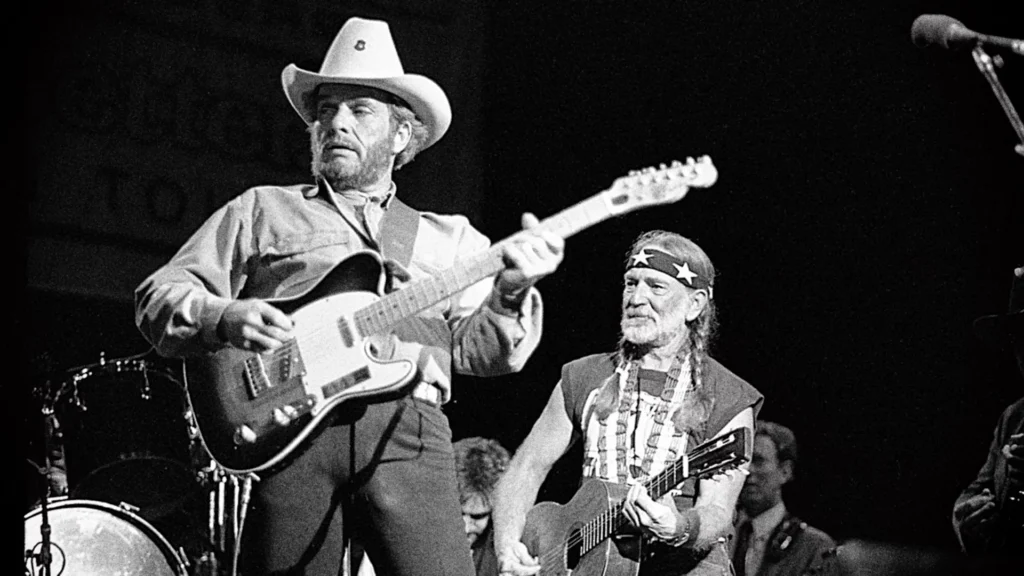
A Dust-Laden Ballad of Betrayal and Brotherhood, Bound by the Lonesome Echoes of the American Southwest
When Willie Nelson and Merle Haggard joined voices on “Pancho and Lefty”, their 1983 rendition of Townes Van Zandt’s haunting outlaw elegy, they transformed a cult-favorite into a chart-topping lament of mythic proportions. Featured on the collaborative album Pancho & Lefty, the song became a defining moment in both artists’ later careers, ascending to No. 1 on the Billboard Hot Country Singles chart and etching its place into the canon of American storytelling through song.
Originally penned and recorded by the reclusive troubadour Townes Van Zandt in 1972, “Pancho and Lefty” is less a linear narrative than it is a parable—a drifting ghost story spun with dust and regret. When Nelson and Haggard took it up over a decade later, they didn’t just cover it; they inhabited it. Their voices, weathered and world-weary, brought texture to a tale already drenched in ambiguity. One could argue that no two singers were better suited to carry its burden: Nelson, the philosophical outlaw with a poet’s soul, and Haggard, the blue-collar bard whose every note bore the weight of lived experience.
The lyrics unfold like wind-blown pages from a half-forgotten dime novel: Pancho, the ill-fated bandit who “wore his gun outside his pants for all the honest world to feel,” and Lefty, the silent betrayer who escapes northward into exile. Yet Van Zandt never offers clean lines between heroism and villainy. The moral terrain here is as arid and unyielding as the desert itself. “The poets tell how Pancho fell,” but who are these poets? And why does Lefty live on “in cheap hotels” with only guilt for company?
Nelson and Haggard underscore that ambiguity masterfully. Haggard’s voice lends gravitas to Pancho’s bravado, while Nelson’s tremulous phrasing carries Lefty’s quiet sorrow like tumbleweeds across borderland highways. The production is sparse—acoustic guitar, brushed drums, subtle steel—leaving room for silence, which in this song says as much as any lyric.
What gives “Pancho and Lefty” its enduring power is not just its enigmatic narrative, but its evocation of loss—of friendship, innocence, ideals. It is a song about choices made under duress and the irrevocable weight they carry. In an era when country music was leaning toward glossy sheen, Nelson and Haggard reminded us that truth often wears dust-covered boots and speaks in whispers.
More than four decades since its original incarnation—and now nearly forty since Nelson and Haggard gave it new life—“Pancho and Lefty” remains one of the most poignant musical meditations on loyalty, betrayal, and the long shadows cast by memory. It is a song suspended between myth and memory, sung by two men who knew intimately how long those shadows could stretch.